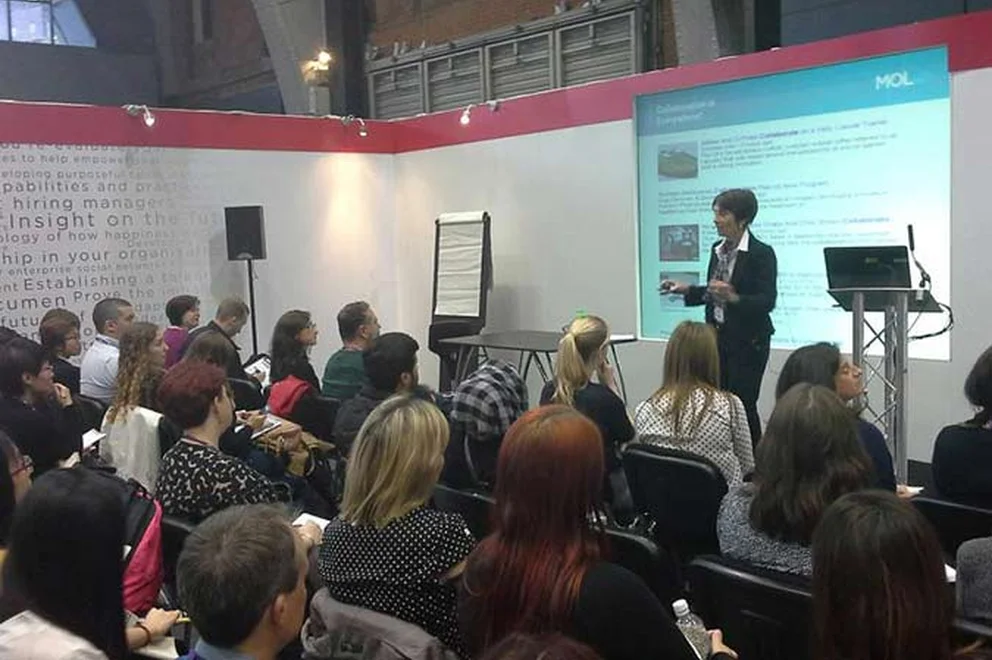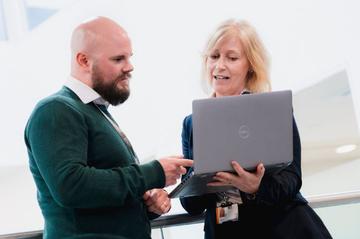Can we Collaborate?
Fri 07 Nov 2014
Large public sector contracts are requiring the competitor teams to work collaboratively on the project and to demonstrate competence in collaboration before the contract is awarded. But do we really get what this means to us as individuals? Do we recognise what we need to change in our behaviour so we are seen as someone who can be collaborative?
Probably in answering these questions your responses are positive. Who would not want to be collaborative? It has become one of those characteristics like communication that everyone believes they do well but equally complains that everyone else does badly!
At the heart of our challenge with collaboration is that although we think we want to collaborate, we have an ingrained tendency towards competition and to wanting to win. This desire to win can mean that we inadvertently do things which cause the collaborative relationships we have been building to break down. We cannot resist the desire to show that it was our unique contribution/idea that allowed the team to be successful. We do this even when it means the others in our team will appear less effective. I see this often when MOL students are working collaboratively on projects; some students will always want me to recognise that although it was a team effort it was their contributions that led them to be successful on the task.
So what is it that is needed to make collaboration more possible? The key to this is the ability to trust others. We need to trust that the others in our team will put the urge to win aside and will do the right thing for the team even at the cost of their own personal gain.
How do you know you can trust others? How do you make sure that they behave in the interests of the team?
The short (and I know rather disappointing) answer to this is that you can’t. You cannot make others do anything. How they behave in a collaborative relationship will be in reaction to your own behaviour and this is the part you can control. This means that the more useful question to ask about collaboration is “what can I do to be seen as trustworthy?”
In the past trust was always seen as something that took time to build up. Recent insights from Swift Trust Theory have indicated that this is not always the case. In reality a lot of trust comes about through our actions and this is something we can control.
The three main actions you can take to build up your reputation for being trustworthy (and therefore someone I would want to collaborate with) are:
- Do what you say you will do, when you said you would do it
- Share what you know with others
- Do your job well, be competent
This sounds simple but these building bricks start to build up the trust relationship and from this you have the basis of an excellent collaborative working relationship.
The extent of collaboration in organisations is growing and so we may also need in our own organisations to create the right conditions to make it possible for teams to collaborate.
There are four key areas to work on with your teams:
- Agree ways of working – it is vital to be clear about who does what, what the expectations are for how things are done.
- Define and share goals – there will be shared goals for the project but also different team members have different goals. I work in one collaborative team where one of my team is planning to retire in 4 years so is looking for projects that enable him to use existing models and do not involve too much new thinking. I personally look for projects that are going to allow me to generate new and exciting approaches. Knowing these different aims helps us to allocate work between us in a way that meets both our needs.
- Manage behaviour – we all think we are trustworthy, we all think we are great listeners, we all think we are open to feedback but the truth is often very different. We need to support teams to address behaviour and increase the self-awareness within the team.
- Review and reflect on practice – collaboration needs practice so your teams need to take stock of what went well by conducting a structured ‘lessons learnt’ review.
Most importantly teams need time to support them in becoming collaborative. Sharing information with others, discussing joint plans, identifying personal objectives, all of this is time consuming. The final goal will be a richer outcome but there will be short-term pain which will sabotage the collaborative working unless we recognise this by allocating more initial start-up time for our project teams.
To return to the question of ‘can you collaborate’? There are some important things you can do to manage your collaborative behaviour by recognising how strong your competitive desire to win is and looking at ways in which you can rein this in! You can start developing your trustworthy behaviour so people want to collaborate with you and finally you can give others and demand for yourself the time and space to work in a collaborative manner.

Human Resources
Qualifications
We're proud to be a CIPD Organisational Delivery Partner and deliver all levels of CIPD qualifications from Foundation Certificate to an MSc.




